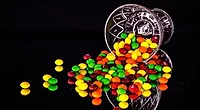Missouri, Washington Introduce Bills to Ban Same Food Additives as California Food Safety Act

Image credit: matthew Feeney via Unsplash
Missouri and Washington are the latest states to introduce bills to ban four food additives—brominated vegetable oil (BVO), potassium bromate, propylparaben, and red dye 3—following the recently passed California Food Safety Act prohibiting the same four additives. If passed, both the Missouri and Washington bills would come into effect on January 1, 2027, and would end the sale, delivery, distribution, holding, or offering for sale foods containing any of the four additives in each state.
New York and Illinois have also introduced similar legislation in the 2024 Session. Most recently, California introduced another bill to ban seven more additives—all food colorants—from foods served in public schools, including titanium dioxide, which was targeted in the original draft of the California Food Safety Act but was negotiated out before the bill was passed.
BVO, potassium bromate, propylparaben, and red dye 3 are being targeted by state legislation due to scientific literature associating the chemicals with health harms like cancer, reproductive issues, and childhood behavioral and developmental problems. Since the passage of the California Food Safety Act and the subsequent wave of similar state bills indicating the possibility of an emerging patchwork of state regulations around food additives, the U.S. Food and Drug Administration (FDA) has turned its attention to these four additives—and food chemical safety in general—proposing a federal ban on BVO in foods in November 2023, hinting that red dye 3 may be next.
To learn more about the nationwide ramifications and precedent set by the California Food Safety Act, listen to the recent Food Safety Matters podcast episode, titled, “Ep. 162. Brian Sylvester: How the California Food Safety Act is Shaping U.S. Food Additives Regulation,” featuring a discussion with Brian Sylvester, J.D., Partner in Perkins Coie LLP's Washington D.C. office and former U.S. Department of Agriculture (USDA) Attorney-Advisor.
Looking for quick answers on food safety topics?
Try Ask FSM, our new smart AI search tool.
Ask FSM →









